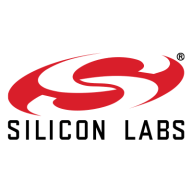

Find out what your peers are saying about Red Hat, Canonical, Oracle and others in Operating Systems (OS) for Business.

Micrium OS stands out in the embedded systems landscape for its versatility, reliability, and top-tier performance, making it a go-to solution across various industries. It shines in high-stakes environments such as medical instruments, automotive systems, consumer electronics, and industrial controls, showcasing its prowess in delivering precise, dependable operations essential in these sectors. Users laud Micrium OS for its stellar reliability, ensuring stable system functions critical for sensitive applications. Its efficiency maximizes system resource utilization, and its real-time performance is unmatched, catering to needs for timely task execution. The OS's ease of integration, flexible architecture, and detailed documentation further elevate its user appeal.
Adopting Micrium OS has led organizations to witness marked improvements in efficiency and productivity, streamlining workflows and fostering better collaboration. Its seamless compatibility with existing systems offers a smooth transition, minimizing the learning curve and hastening operational speed while reducing errors. The OS's customization capabilities allow it to meet specific needs, enhancing departmental performance and contributing to significant cost savings. Collectively, these attributes demonstrate Micrium OS as a comprehensive, efficient, and reliable choice for embedded system development, driving positive outcomes in organizational performance and goal achievement.
Ubuntu Linux is an powerful, easy-to-use, customizable, free, and safe open-source operating system. Some of the world’s top tech corporations, like Intel and Microsoft, rely on Ubuntu Linux to power their operations. It is an operating system that is so trusted by the tech community that it comes pre-installed on global computer vendors like HP and Dell. It is therefore little wonder that Ubuntu Desktop is the world’s most widely-used Linux workstation platform.
Ubuntu Linux comes in a variety of derivatives that enable organizations to select the operating system type that will best meet their needs. There are four derivative types and a number of flavors. The derivative types are:
1. Ubuntu Desktop. As indicated by the name, this derivative is specifically designed to run on laptops and desktops. That said, it is a solution that can be and is used to power other hardware-based systems, such as servers and data centers. However, without the addition of software that primes it to serve as a server program, it only functions on desktops and, as a result, only runs applications that are meant for general use. These can include applications like web browsers and multimedia programs. Users can install it through a prompt-driven process that plays out on their graphical user interfaces.
2. Ubuntu Server. This version of Ubuntu differs from Ubuntu Desktop in a number of ways. The first is that, as suggested by the product name, it is designed for use on an organization’s servers. It is for this reason that Ubuntu Server supports applications that are more focused on the operations of the server and the network that it runs. This differs from Ubuntu Desktop in that Desktop is basically only concerned with the device that is running it. Their methods of installation also differ, as Ubuntu Server has no graphical user interface. Instead, it is installed by way of a process-driven menu.
3. Ubuntu Core. Ubuntu Core is a stripped-down version of Linux that is specifically designed to handle embedded device projects.
4. Ubuntu Cloud. The designers of Ubuntu Cloud focused on providing users with a highly secure and versatile operating system that they can run on the public cloud.
Ubuntu Linux Benefits
Some of the ways that organizations can benefit by deploying Ubuntu Linux’s open-source operating system include:
Ubuntu Linux Features
Hardware autoconfiguration. The hardware drivers that users need in order to configure the hardware correctly so that Ubuntu Linux can be properly installed come built -in to the Ubuntu Linux operating system.
Reviews from Real Users
Ubuntu Linux is an operating system that stands out when compared to many of its competitors. Two of its major advantages are the high level of security that it offers applications that run on it and the low level of maintenance that it actually requires system administrators to do once it has been deployed.
Franco P., the founder and CEO of Applied Labs, writes, “When you have this relationship with Linux and you start working with very secure environments, there's less possibility of being directly attacked by a group of hackers. You will lose less data and you will have a more reliable ecosystem.”
The principal cloud architect at a wholesaler and distributor writes, “With Ubuntu Linux, you can set it and forget it. It requires a low amount of administrative overhead.”
We monitor all Operating Systems (OS) for Business reviews to prevent fraudulent reviews and keep review quality high. We do not post reviews by company employees or direct competitors. We validate each review for authenticity via cross-reference with LinkedIn, and personal follow-up with the reviewer when necessary.